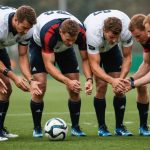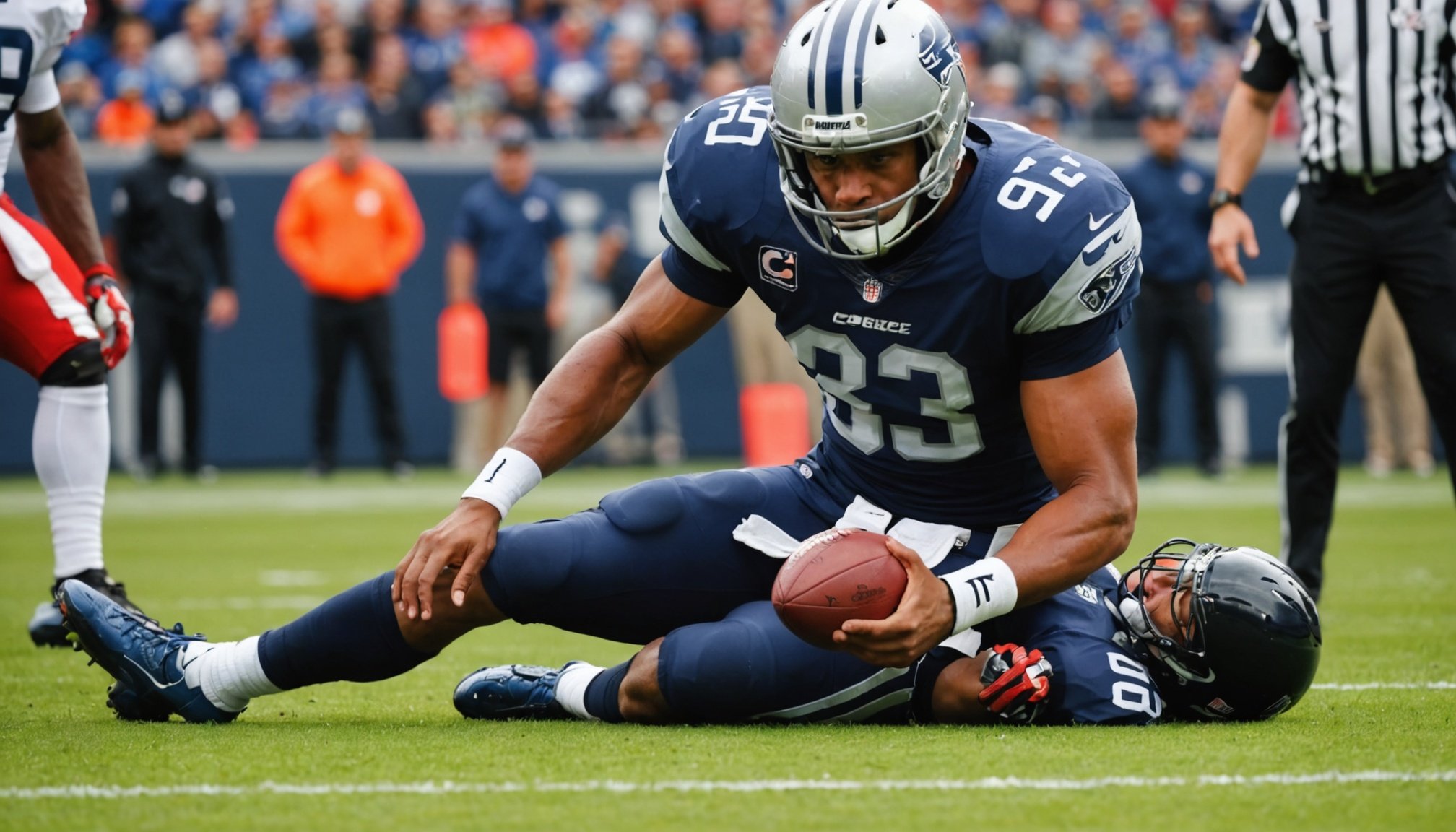Unlocking Recovery: The Impact of Sports Psychology on Healing from Athletic Injuries
Understanding the Mental Game of Injury Recovery
When athletes suffer from injuries, the road to recovery is often as much a mental challenge as it is a physical one. Sports psychology plays a crucial role in this process, helping athletes navigate the psychological hurdles that can arise during injury rehabilitation.
The Psychological Factors Involved
Injury recovery involves more than just physical healing; it also encompasses a range of psychological factors. These include confidence, focus, motivation, and resilience, all of which can be significantly impacted by the injury itself and the subsequent recovery process.
In parallel : How can you effectively use foam rolling for muscle recovery?
- Confidence: An injury can severely dent an athlete’s confidence, making it difficult for them to believe in their abilities once they return to their sport. Techniques such as visualization and positive self-talk can help athletes rebuild their confidence.
- Focus: Maintaining focus and concentration is essential during the recovery process. Athletes may need to adapt to new training routines or rehabilitation exercises, which can be mentally demanding.
- Motivation: Staying motivated is crucial for athletes to adhere to their rehabilitation plans. Sport psychology can help athletes set realistic goals and develop strategies to maintain their motivation.
- Resilience: Resilience is key for athletes to bounce back from setbacks, including injuries. Sport psychology teaches athletes how to manage stress, stay positive, and overcome obstacles.
The Benefits of Sport Psychology in Injury Recovery
Sport psychology offers a range of benefits that can significantly enhance the recovery process for injured athletes.
Improved Mental Toughness
Mental toughness is the ability to perform at one’s best even under pressure or in challenging circumstances. During injury recovery, athletes often face significant psychological challenges, such as dealing with pain, frustration, and uncertainty. Sport psychology can help athletes develop mental toughness through techniques like goal-setting, positive self-talk, and mindfulness.
Topic to read : Unlocking the Biomechanical Advantages of Barefoot Running: Discover the Benefits for Your Feet and Performance
Increased Confidence
Confidence is essential for athletes, and an injury can erode this confidence quickly. Sport psychology can help athletes develop a strong sense of self-belief through visualization, positive affirmations, and gradual exposure to challenging situations.
Enhanced Focus and Concentration
Athletes need to maintain focus and concentration during their rehabilitation. Techniques such as attentional control and mindfulness can help athletes stay focused on their recovery goals, even in the face of distractions or setbacks.
Better Coping Skills
Injuries can be emotionally challenging, and athletes may struggle with stress, anxiety, or depression. Sport psychology can help athletes develop better coping skills, such as learning to manage stress, stay positive, and bounce back from setbacks.
Techniques Used in Sport Psychology for Injury Recovery
Sport psychology employs several techniques to help athletes recover from injuries.
Visualization
Visualization involves imagining oneself performing successfully in their sport. This technique can help athletes maintain a positive mindset and build confidence during the recovery process.
Goal-Setting
Setting realistic and achievable goals is crucial for athletes during injury recovery. This helps in maintaining motivation and focus. For example, an athlete might set short-term goals related to their rehabilitation exercises and long-term goals related to their return to competition.
Positive Self-Talk
Positive self-talk involves using affirmations to boost confidence and morale. Athletes can use positive self-talk to counter negative thoughts and stay motivated.
Mindfulness and Attentional Control
Mindfulness and attentional control help athletes stay focused on the present moment and manage distractions. These techniques can be particularly helpful during rehabilitation exercises, where maintaining focus is critical.
The Role of Social Support in Injury Recovery
Social support is a vital component of the recovery process for injured athletes.
Family and Friends
Support from family and friends can provide emotional comfort and practical help. For example, having a supportive partner or friend can help with daily tasks and provide encouragement during difficult times.
Team and Coaches
The support of teammates and coaches can also be crucial. A supportive team environment can help athletes feel connected and motivated, even when they are not actively participating in their sport.
Mental Health Professionals
Working with mental health professionals, such as sport psychologists, can provide athletes with the tools and strategies they need to manage the psychological aspects of injury recovery. Here is what Wiese-Bjornstal, a renowned expert in sport psychology, has to say about the importance of social support:
“Social support is a critical factor in the recovery process. Athletes who have strong social support networks tend to have better outcomes and faster recovery times”.
Practical Insights and Actionable Advice
Here are some practical insights and actionable advice for athletes recovering from injuries:
Stay Positive and Focused
- Maintain a Positive Mindset: Use positive self-talk and visualization to stay positive and focused on your recovery goals.
- Set Realistic Goals: Break down your recovery into smaller, achievable goals to maintain motivation and track progress.
Seek Social Support
- Lean on Family and Friends: Don’t hesitate to ask for help from family and friends. They can provide emotional support and practical assistance.
- Engage with Your Team: Stay connected with your teammates and coaches. This can help you feel part of the team even when you’re not actively participating.
Use Mental Training Techniques
- Practice Mindfulness: Use mindfulness techniques to stay focused and manage stress.
- Engage in Goal-Setting: Set both short-term and long-term goals to maintain motivation and direction.
Table: Comparing Physical and Psychological Aspects of Injury Recovery
| Aspect | Physical | Psychological |
|---|---|---|
| Focus | Rehabilitation exercises, physical therapy | Maintaining focus, concentration, and motivation |
| Challenges | Pain, physical limitations, risk of re-injury | Frustration, anxiety, loss of confidence |
| Techniques | Physical therapy, strength training, flexibility exercises | Visualization, positive self-talk, mindfulness, goal-setting |
| Support | Medical professionals, physical therapists | Mental health professionals, family, friends, teammates |
| Outcomes | Full physical recovery, return to sport | Improved mental toughness, increased confidence, better coping skills |
| Long-term Impact | Reduced risk of future injuries, improved physical health | Enhanced resilience, better mental health, improved overall well-being |
Recovering from an athletic injury is a complex process that involves both physical and psychological components. Sport psychology is a powerful tool that can help athletes navigate the mental challenges of injury recovery, enhancing their overall recovery process and preparing them for a successful return to their sport.
By understanding the psychological factors involved, leveraging the benefits of sport psychology, and using specific techniques such as visualization, goal-setting, and mindfulness, athletes can overcome the hurdles of injury recovery. Additionally, seeking social support from family, friends, teammates, and mental health professionals is crucial for a holistic recovery.
Remember, recovery starts in the mind as much as it does in the body. With the right mental tools and support, athletes can unlock their full potential and return to their sport stronger and more resilient than ever before.











